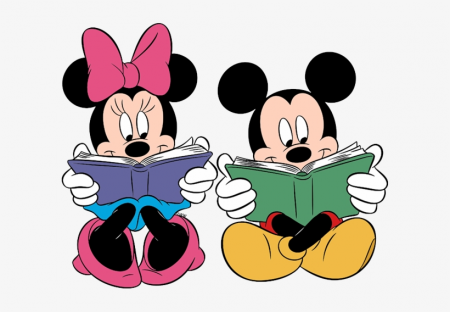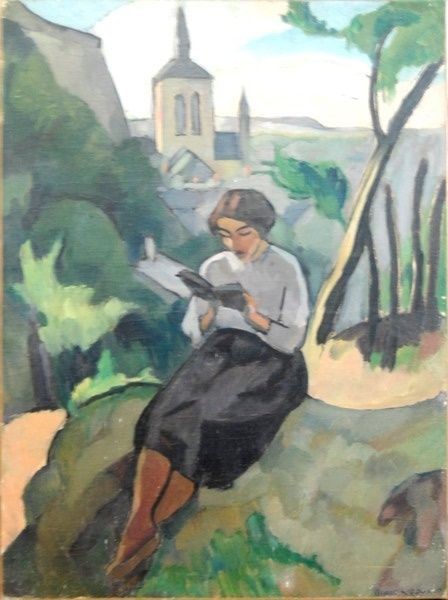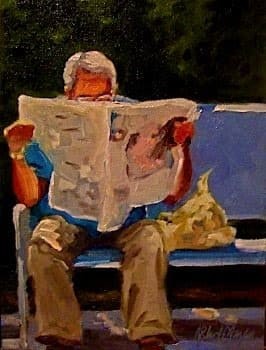Teacher question:
My 8-year-old grandson is a second grader who's been reading quite a while now. However, his reading diet comprises almost exclusively graphic novels, some of them intended for much older children, and he has little to no interest in making the transition to text-only books. We were all so pleased that he was an early reader, but now it's very hard to unstick him from the graphic novels he's so fond of. I would love to know your thinking about this and what might be done to bring him to the larger world of books.
Shanahan response:
You’ve raised a great question and one for which there is not much recent research. There have been many studies of kids’ reading interests, but for the most part they focus on what kids are interested in rather than on how to broaden those interests. Those older data suggest that boys about the age of 7 fall in love with comic books (these studies were pre-graphic novels) and that this infatuation peaks at about age 12 (Davila & Patrick, 2010). In other words, this may be a passing fancy, but not one likely to pass soon. The good news is that no one has found any relationship between interest in comics and reading levels, suggesting that such reading probably isn’t doing any harm (e.g., Lamme, 1976). In the 1940s-1950s there were anxieties about the supposed maladies caused by reading comic books (e.g., insanity, immorality, illiteracy) but none of those panned out. Given the higher quality of the more recent graphic books, I expect those bad outcomes to be even more remote today.
Often, you’ll hear teachers say, “I don’t care what they read as long as they read.” There is some truth in that. There are decoding or fluency benefits from practice reading. No reason to expect the word reading practice in graphic novels to have any less value than any other kind of reading. Research also indicates that graphic novels introduce a lexicon a bit more sophisticated or extensive than comparable traditional books for kids (Cunningham & Stanovich, 2001). I suspect the visual elements may even help your grandchild to gain access to those challenging words, too (Rothenberger, 2019). I know many graphic novel advocates make claims for the growing importance of graphics interpretation, but I’m not convinced by those arguments. The narrative pictorials in graphic novels look nothing like the graphic displays in scientific and engineering treatises or the complicated tabulations or statistical summaries that are so common in academic and technical texts; those skills are too different to facilitate any kind of transfer.
In the past, a legitimate complaint about comic books was their narrow fictional focus. Let’s face it, kids weren’t going to learn a lot about our social or natural worlds from Archie or Superman. Graphic books, these days, are not really a genre as much as a presentation format. Despite the term, “graphic novels” these newer graphic books are of a broader nature. Kids can still read graphic stories but there are lots of other choices, as well. That means that graphic novels won’t necessarily have to narrow your grandson’s exposure to rich content.
Unfortunately, graphic novel advocates ignore what those books don’t contribute. Despite a wider scope of content, they are still pretty narrow in presentation approach. A narrative told in dialogue supported by pictures is pretty different than what kids will find in traditional texts. Likewise, one hopes their children and grandchildren would develop an ability to sustain the kinds of attention and concentration demanded by the more extensive presentations of traditional text. Reading 15 words and looking at a picture, reading 12 words and looking at a picture, reading 1 interjection and looking at a picture… is quite a different challenge than reading hundreds and even thousands of words at a run. Such intellectual stamina isn’t likely to result from lots of graphic novel reading.
Reading graphic novels may do no harm, but it’s a kind of lost opportunity. Your grandson could be building a more complete foundation for his reading future by taking on a more complete reading diet.
As a boy, I was a passionate reader, but I focused all of my reading energy on a narrow range of texts (usually baseball and presidents). That kind of topical narrowness has tradeoffs too. In terms of vocabulary, for instance. That focus increases the number of times particular words and phrases are used and that increases the odds of learning them (I certainly understand the “infield fly rule” and know what a “delayed double steal” is all about) – but it also limits the vocabulary the reader is exposed to –Reading about baseball or any other topic is great, but constrained reading habits are a lost opportunity.
That’s what I think is happening with your grandchild. He is getting reading practice without all the benefits that are possible.
1. Level with him. Don’t vilify the books he loves. Make sure he understands your concerns. He might love ice cream. Nevertheless, I’m sure he knows that a steady diet of ice cream is not good for him. Explain to him the range of books available and the benefits of experiencing a wider range of possibilities. Some he’ll love, some he’ll tolerate. He’ll gain insight from all of them. Letting him know about that will allow him to look out for himself in this regard.
2. Add magazines to the equation. Boys not only love graphic novels. They often enjoy magazines. There are a bunch available these days and one of things that I love about magazines is they show up regularly in the mailbox. If he is drifting into only reading graphic novels another option shows up regularly.
3. Read a book together. Regular books can seem formidable. One way to reduce this sense of being overwhelmed is to make it a social activity. I think for many adults, book clubs and book discussion groups serve this function. With 8-year-olds, a parent (or grandparent) may be the best game in town. Take turns reading chapters to each other – and use it as a great bonding activity.
4. Reward him for reading other texts. Build these rewards into the reading itself. For instance, If he reads a particular book you might have a video night (the video of that book) complete with pizza and popcorn. Or a book on ice skating or roller skating might turn into a family expedition. A book of science experiments may lead to the creation of a working volcano or a pot of slime.
5. Gift books may help. Gift books are not always read, of course; neither are they always neglected. A gift book at holiday time or birthday should represent what you hope for him.
6. Broaden the graphic books diet. Make sure he is being exposed not just to graphic stories but to graphic history and science as well.
7. Try transitional graphic novels. I love Brian Selznick’s books… they are graphic novels, kind of. Their pictures contribute to the narrative, but the stories are not told in dialogue. I have come to think of them as transitional graphic novels. A related idea is to find non-graphic novels that are related to graphic novels, sort of “a make your own transition series.” See, for instance, https://www.provolibrary.com/blog/1769-helping-kids-transition-from-graphic-novels-to-novels
Good luck.
References
Cunningham, A.E., & Stanovich, K.E. (2001). What reading does for the mind. Journal of Direct Instruction, 1(2), 137-149.
Davila, D., & Patrick, L. (2010). What children have to say about their reading preferences. Language Arts, 87(3), 199-210.
Lamme, L.L. (1976). Are reading habits and abilities related? Reading Teacher, 30(1), 21-27.
Rothenberger, K.A. (2019). The effects of reading graphic novels on the vocabulary acquisition of students with learning disabilities. Unpublished Master’s thesis. Caldwell University.







Comments
See what others have to say about this topic.